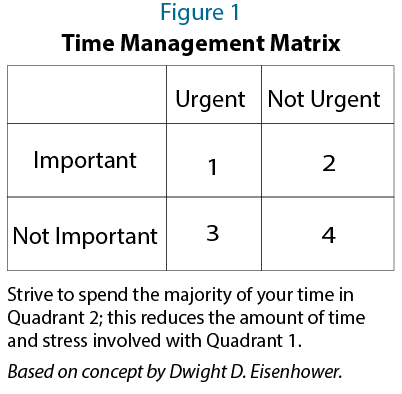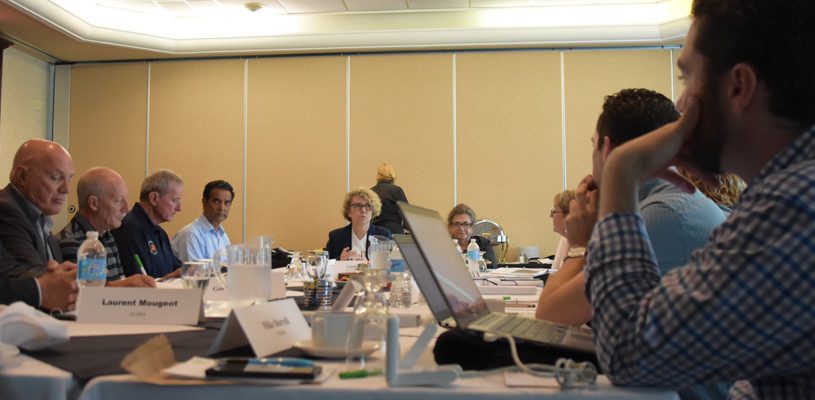DIY Workplace Gratification

Nine strategies to increase your happiness and productivity at work
Feeling stagnant at work? Demotivated? Unsatisfied?
Happiness is identified as the key to improving productivity at work and creating an environment conducive to intrinsic motivation and happiness. Sounds simple, doesn’t it?
Why then, do we become unhappy and unproductive?
Realistically, it is difficult to “create” this euphoria that employees long for and that employers strive to provide, but often come up short.
The challenge of assimilating the multigenerational workforce – self-reliant, achievement-oriented Boomers; work hard/play hard Generation Xers; and the recently emerged Generation Y, with their narcissistic attitudes – has introduced an even more demanding dynamic in creating happiness in the workplace.
There seems to be a misconception that the employer is responsible for the employee’s happiness in the workplace. Indeed, one could wait a long time for an employer to fulfill their happiness.
The reality is that both the employer and employee are responsible for generating an enjoyable, productive work environment. It is not a one-way proposition. However, if your employer is unaware of, or not fulfilling their responsibility, the following are actions you can take to improve the working conditions and impact the factors that lead to happier employees and a more productive workplace.
1. Challenge yourself
- Determine if there are any gaps in the skills required for your position and the skills you possess; make a plan to close the gaps.
- Work towards acquiring new skills:
- learn someone else’s job tasks; and
- take courses to enhance your current position or to facilitate a promotion.
- Ask yourself “Am I doing the best I can with what I have?” Are you using the resources available to you most efficiently?
- Before complaining about an issue or challenge, be sure to develop a solution idea.
- Emulate the professional colleague you most admire and respect.
2. Control
- Determine what you like/love to do in your job and what you are not crazy about – discuss both with your manager/supervisor and ask if there are any opportunities for more of what you like and reassignment of tasks you don’t prefer.
- Focus your efforts on changing the things within your control; let go of the rest.
- Create a personal mission and vision statement and update it annually.
- If you set goals with your employer, review your goals regularly; document goals met to date or the action taken toward attaining them and ensure this information becomes part of your annual performance evaluation.
- If you do not currently set goals, start; ask your manager/supervisor to review these goals with you.
3. Cooperation
- Say “Yes” when asked to help or participate.
- Ask for help when you need it.
- Start a cross-functional focus group or team to
- generate ideas for process improvement; and
- list challenges in your department/municipality and generate ideas for overcoming them.
- Form a user group within your geographical area or with personnel in the same organizational capacity to share best practices and discuss common issues/challenges.
4. Recognition
- Say “Thank you.”
- Acknowledge when someone has done something well.
- Thank your employer when opportunities are provided.
5. Happiness
- Bring and make happiness a priority, in your life and in your work.
- If, after a genuine effort, you are not feeling improvement, consider changing employment.
- Always know you have a choice; it may not be the choice you love, but there will be choices in every situation.
6. Trust
- Share information and knowledge with co-workers.
- Follow through on your commitments.
- Let others shine, too.
7. Communication
- Review corporate/municipal communications – newsletters, council meeting minutes, website, etc.
- Attend a council meeting.
- Ask questions – many questions.
- Develop your communication skills through taking a course or workshop.
- Where conflict arises, refrain from “gossiping” about it – go to the source and address the issue, professionally and courteously.
8. Socialization
- Set up a meeting/lunch with someone in your municipality whose position you do not know very well to:
- determine how they fit in the organization;
- inquire about what challenges they face;
- ask what skills/background and education are required for their position; and
- question what the person likes and dislikes about their position.
- Arrange a monthly “lunch and learn” for your municipality/department:
- bring guest speakers in to discuss topics you feel you and others could benefit from;
- invite a community member to speak on the history of the municipality or their significance within the community;
- arrange training opportunities; and
- organize a fun activity.
- Start a social club if your municipality does not have one; if the organization already has a social club, get involved.
9. Time Management
- Review and evaluate your position and tasks using the productivity matrix shown in Figure 1.

- Review the purpose and benefit of participating in each meeting you currently attend to determine if your attendance is necessary; are there alternatives to attending (receiving/reviewing minutes; conference calling into meeting, web-based meeting attendance, etc.)?
- Assess the deliverables you provide throughout your municipality (reports, documents, data, etc.):
- Who uses your deliverable? If no one looks at the report you produce, does it really need to be produced?
- Is what you are providing what the user needs?
- When is it required? Could the task be executed more efficiently, moving it from quadrant 1 to quadrant 2 (see productivity matrix in Figure 1)?
- In what format? Could a paper document be provided electronically?
No matter who you are or what position you hold in your municipality, each individual has an obligation to contribute to productivity and gratification in the workplace. Whether you are a Baby Boomer, Generation Xer, or Generation Yer, there are many actions available to increase your own happiness and satisfaction at work. Do your part and see how your municipality reacts. MW
Tracey Seitz Burkholder, Contigo Business Services Inc., is a CMA providing services to municipal clients throughout Alberta. Services include interim management, mentoring, strategic planning, organizational structure, productivity and process improvement, and performance management. Contact Tracey at <contigobusiness@shaw.ca> or (403) 934-4765.
as published in Municipal World, October 2012



